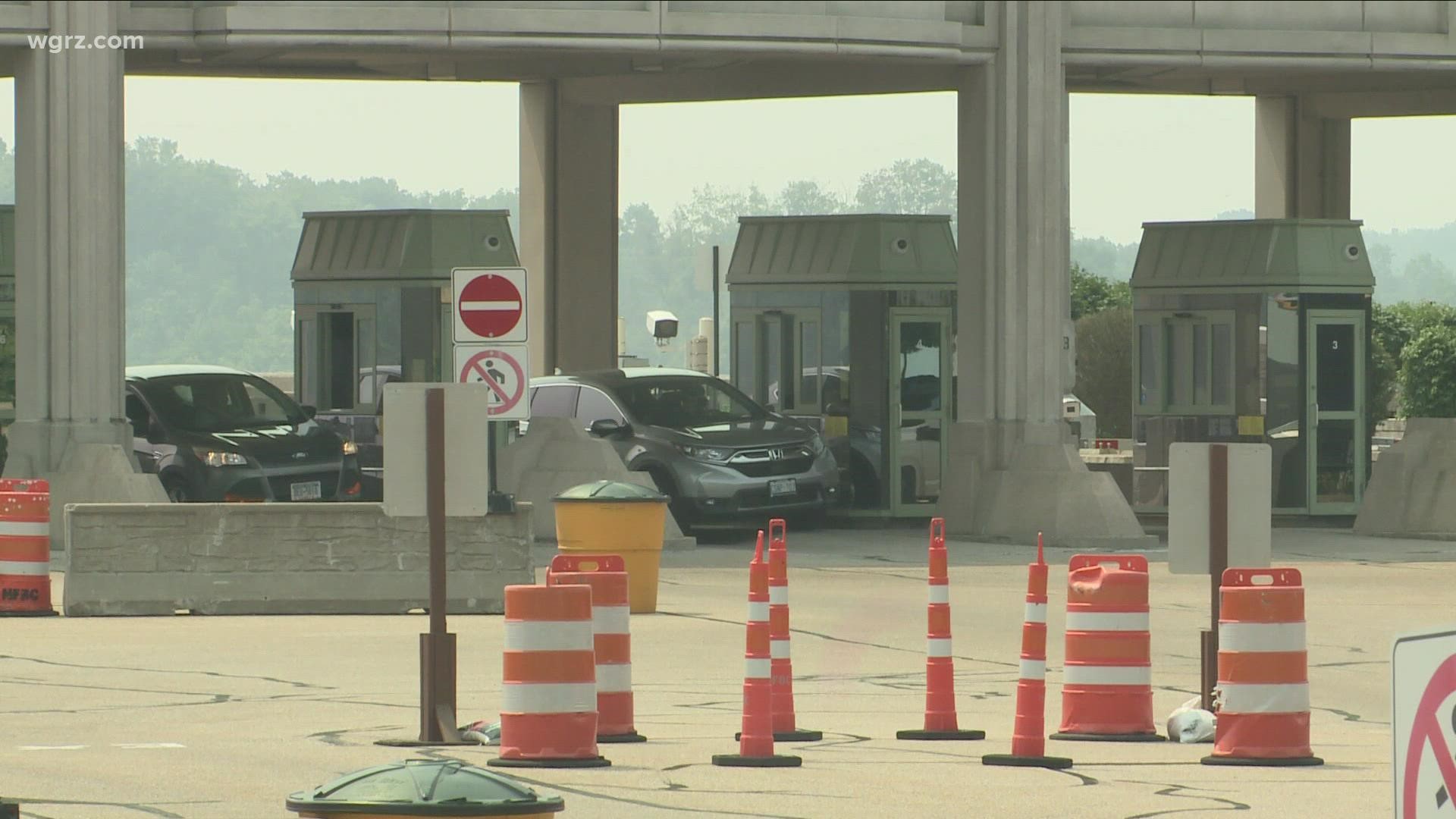BUFFALO, N.Y. — Many people in Western New York are planning to cross over to Canada when Canada opens its side of the border to fully vaccinated Americans on Monday.
But getting over there could be time consuming if Canadian border agents don’t get a new contract.
According to the Customs and Immigration Union, border agents plan a work-to- rule job action Friday at 6 a.m., meaning they will follow every health and safety regulation in the book, to increase border wait times going into Canada.
It's all an attempt for Canadian border agents to get a new contract.
They say they haven’t had one in three years.
Agents wants higher pay, more flexibility in working from home for certain employees and they also say there’s excessive discipline from the Canadian government after complaints are filed against border agents.
The union that represents border agents and other employees at the bridges says they won’t walk off the job, but will drive up border wait times.
"We traditionally and routinely don’t work to the letter of the law, in order to make sure the traveling public can come in very smoothly, as well as, make sure the cargo can come in smoothly, but if we actually do the job the way we’re trained to do it’s going to have significant impacts on wait times at the land borders and the airports," said Rick Savage, first national vice-president for the Customs and Immigration Union.
How would this affect things on Monday when fully vaccinated Americans can start to cross?
"They can expect higher scrutiny on them, they can expect their goods to be searched they can expect their vehicles to be searched," Savage said.
What’s the answer to people who would have to suffer through that?
"My answer to people who would have to suffer through that is first off be patient, second of all this is the fault of the government," Savage said.
If a deal isn’t reached, the union says it could move to a strike, but agents would still show up to work, and there would be numerous duties that agents wouldn’t do.
"If we go to a strike, as opposed to a work-to-rule, we would not be collecting duties and taxes. That’s going to affect the government of Canada because I believe over $87 million worth of trade travels between these two countries," Savage said.
Moving to the work-to-rule action and threatening to go on strike are the only options the union says it has left to get a new contract.
Meantime, with border restrictions loosening further, there’s a sense of relief with Canada opening its side of the border to fully vaccinated Americans in just four days.
"It’s hard because you always like to see cousins growing up with each other, so my children really haven’t seen their cousins, who they haven’t seen in the last year and a half, so it’s a big bummer here," said Josh Grden of Cheektowaga.
He says he and his wife plan to cross next weekend to see family.
"I would walk through hell to see my family again, so if I have to be on that bridge for six hours lord help me I’ll do it," Grden said.
A spokesperson for the Treasury Board of Canada says: "The board has now appointed a mediator and mediation sessions between the Government of Canada and the Public Service Alliance of Canada began the evening of August 4, 2021 and are ongoing at this time. The Government of Canada has great respect for border services officers and the important work that they do and remains committed to reaching agreements with all bargaining agents that are fair to employees, mindful of today’s economic and fiscal context and reasonable for Canadian taxpayers."
The Canada Border Services Agency has issued this statement: "The Canada Border Services Agency (CBSA), as a dynamic and responsive organization that delivers high quality border services, will respond quickly to any job action/work disruption in order to maintain the safety and security of our border, ensure compliance with our laws, and keep the border open to legitimate travelers and goods. CBSA officers have proven their tremendous resilience and dedication since the beginning of the COVID-19 pandemic by helping to prevent the spread of the virus and its variants, while facilitating the flow of essential goods. They remain vigilant and continue to effectively enforce some of the world’s strongest border measures to keep Canadians safe. Ninety percent (90%) of frontline Border Services Officers have been identified as essential, meaning that they will continue to offer essential services if there is a strike. We expect that our officers will continue to fulfill their duties with the highest level of integrity and professionalism."

